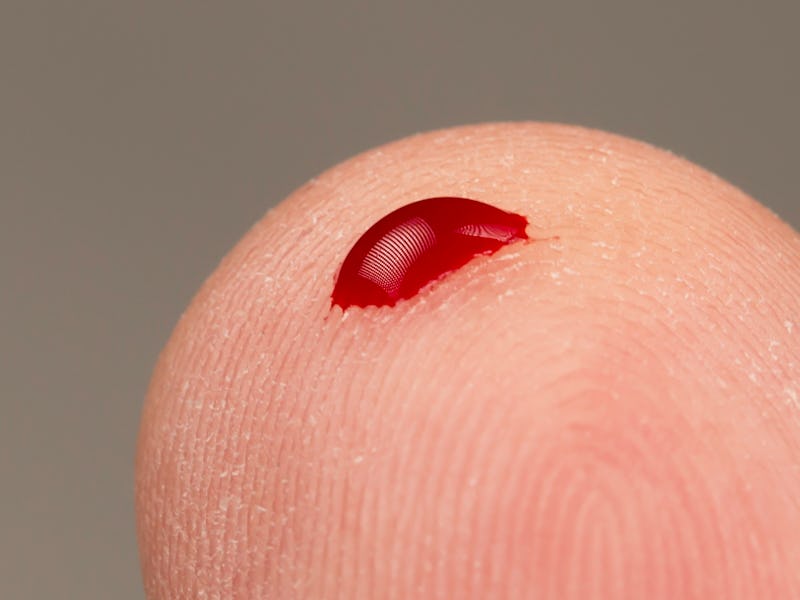We Might Finally Be Able to Detect Cancer Through a Simple Blood Test
It could save lives, but maybe not quite yet.

Many cancer patients don’t receive a diagnosis until their disease has progressed too far to treat very easily with surgery alone. By the time symptoms have become apparent, tumors have often metastasized to other parts of the body, which means turning to treatments options like chemotherapy and radiation that could damage healthy tissues and may not even completely eliminate the cancer.
For this reason, doctors are keen on finding new, inventive ways to detect cancer early. And a team of researchers based at Johns Hopkins University School of Medicine has brought us one step closer to a noninvasive blood test that could both detect early-stage cancer and identify which organ it’s located in.
In a paper published Thursday in the journal Science, the researchers explain results from a trial for a blood test designed to detect eight different types of cancer. By measuring a particular set of mutated genes associated with tumors, as well as a handful of proteins specific to tumors, this new test, which they call CancerSEEK, detected cancer in 1,005 patients with 69 to 98 percent efficacy for five types of cancer. The test only delivered a false-positive result in less than one percent of the 850 healthy control subjects.
Doctors have developed a noninvasive blood test for eight types of cancer.
This is a big deal because, for five of the cancer types the team tested for, there is no established screening protocol. In the future, it’s possible that an annual checkup could include a cancer blood test, just as many older adults are checked for colorectal, breast, and prostate cancers.
To conduct this study, the study’s authors took blood samples from patients with early-stage cancer in the ovary, liver, stomach, pancreas, esophagus, colorectum, lung, or breast. They used CancerSEEK to look for two different cancer markers: gene mutations and proteins. They tested 16 specific genes associated with cancer mutations, and they tested for eight proteins that are released by tumors.
By detecting tumors before they’re making people noticeably sick, doctors hope they can make surgical removal a possibility for more people. But it’s not totally clear that this test will actually detect pre-symptomatic cancer tumors since the proteins are released in such small quantities by early-stage tumors. Just as importantly, it’s not necessarily true that operating on a non-life-threatening tumor is better than living with cancer.
So what’s the next step for the researchers? According to The BBC, the researchers are testing CancerSEEK on people who don’t yet have a cancer diagnosis. The subjects in this initial study had already been diagnosed, so the real test will be whether the procedure can find cancer doctors don’t already know about.
Abstract: Earlier detection is key to reducing cancer deaths. Here we describe a blood test that can detect eight common cancer types through assessment of the levels of circulating proteins and mutations in cell-free DNA. We applied this test, called CancerSEEK, to 1,005 patients with non-metastatic, clinically detected cancers of the ovary, liver, stomach, pancreas, esophagus, colorectum, lung, or breast. CancerSEEK tests were positive in a median of 70% of the eight cancer types. The sensitivities ranged from 69% to 98% for the detection of five cancer types (ovary, liver, stomach, pancreas, and esophagus) for which there are no screening tests available for average-risk individuals. The specificity of CancerSEEK was > 99%: only 7 of 812 healthy controls scored positive. In addition, CancerSEEK localized the cancer to a small number of anatomic sites in a median of 83% of the patients.